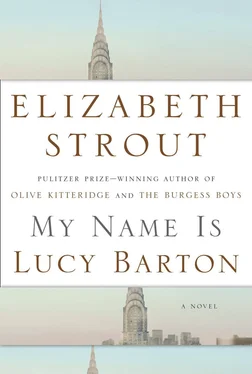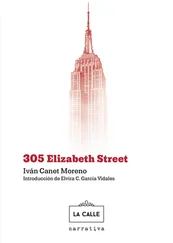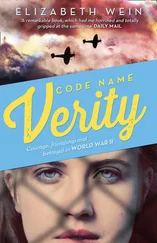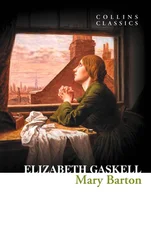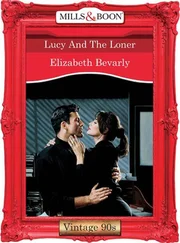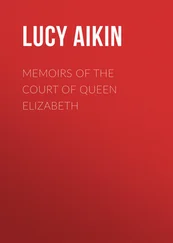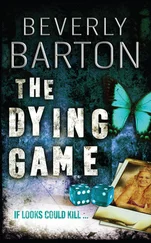And a look went across his face — so fast, so involuntary — that was a look of real distaste. I had not yet learned the depth of disgust city people feel for the truly provincial.
—
The second thing about Jeremy: I had my first story published right after I moved to New York, and then it was a while, and my second story was published. On the steps one day, Chrissie told this to Jeremy. “Mommy got a story in a magazine!” He turned to look at me; he looked at me deeply; I had to look away. “No, no,” I said. “Just a silly little really small literary magazine.” He said, “So — you’re a writer. You’re an artist. I work with artists, I know. I guess I’ve always known that about you.”
I shook my head. I thought of the artist from college, his knowledge of himself, his ability to forgo children.
Jeremy sat down beside me on the stoop. “Artists are different from other people.”
“No. They’re not.” My face flushed. I had always been different; I did not want to be any more different!
“But they are.” He tapped my knee. “You must be ruthless, Lucy.”
Chrissie jumped up and down. “It’s a sad story,” she said. “I can’t read yet — I can read some words — but it’s a sad story.”
“May I read it?” Jeremy asked me this.
I said no.
I told him I could not bear it if he didn’t like it. He nodded and said, “Okay, I won’t ask again. But, Lucy,” he said, “you talk to me a lot, and I can’t imagine reading anything by you that I wouldn’t like.”
I remember clearly that he said “ruthless.” He did not seem ruthless, and I did not think I was or could be ruthless. I loved him; he was gentle.
He told me to be ruthless.
—
One more thing about Jeremy: The AIDS epidemic was new. Men walked the streets, bony and gaunt, and you could tell they were sick with this sudden, almost biblical-seeming plague. And one day, sitting on the stoop with Jeremy, I said something that surprised me. I said, after two such men had just walked slowly by, “I know it’s terrible of me, but I’m almost jealous of them. Because they have each other, they’re tied together in a real community.” And he looked at me then, and with real kindness on his face, and I see now that he recognized what I did not: that in spite of my plenitude, I was lonely. Lonely was the first flavor I had tasted in my life, and it was always there, hidden inside the crevices of my mouth, reminding me. He saw this that day, I think. And he was kind. “Yes” is all he said. He could easily have said, “Are you crazy, they’re dying!” But he did not say that, because he understood that loneliness about me. This is what I want to think. This is what I think.
In one of those clothing shops New York is famous for, one of those places privately owned and sort of like the art galleries of Chelsea, I found a woman who turned out to affect me a great deal, who may — in ways I don’t understand fully — be the reason I have written this. It was many years ago now, my girls would have been perhaps eleven and twelve. In any event, I saw this woman in this clothing store and I felt certain she hadn’t seen me. She had the sort of ditzy look you seldom see on women anymore, and she was attractive with it, wore it very well, and she was I would have said almost fifty years old. She was attractive in many ways, stylish, and her hair — ash is the color we used to call it — was well done, by which I mean I understood the color to have come not from a bottle but from the hands of a person trained to work in a salon. And yet it was her face I was drawn to. Her face, which I watched in the mirror while I tried on a black jacket, and finally I said, “Do you think this works?” Her look was surprised, as though she had no idea someone would ask her opinion on clothes. “Oh, I don’t work here, I’m sorry,” she said. I told her I understood that, I only wanted her opinion. I told her I liked the way she dressed.
“Oh, okay. You do ? Well, thanks, wow. Yeah, okay. Oh yeah”—she must have seen me tugging on the lapels of the jacket I had asked her about—“it’s nice, that is nice, are you going to wear it with that skirt?” We discussed the skirt, and whether or not I owned a longer skirt, just in case, as she put it, I “might want to wear heels, you know, a little pickup.”
She was as beautiful as her face, I thought, and I loved New York for this gift of endless encounters. Perhaps I saw the sadness in her too. This is what I felt when I got home and her face went through my mind; it would be something you didn’t know you saw at the time, as she smiled a great deal and it made her face sparkle. She had the look of a woman who had men still falling in love with her.
I said, “What do you do?”
“For a job?”
“Yes,” I said. “You just look like you do something interesting. Are you an actress?” I put the jacket back on the hanger; I did not have the money to buy such a thing.
Oh no, no, she said, and then she said, and I swear I saw her color rise, “I’m just a writer. That’s all.” As though she might as well confess, because — I sensed — she had been caught before. Or perhaps being “just a writer” was all she thought it was. I asked her what she wrote, and then her color clearly did rise, and she waved her hand and said, “Oh, you know, books, fiction, things like that, it doesn’t matter, really.”
I had to ask her name, and again I had the sense I’d caused her great embarrassment — she said in one breath: “Sarah Payne”—and I didn’t want to cause her embarrassment, so I thanked her for her advice, and she seemed to relax and we spoke of where to get the best shoes — she was wearing a pair of black patent leather high heels — and that made her happy, I thought, and then we parted, each of us saying how nice it had been to meet the other.
—
At home in our apartment — we had moved by then to Brooklyn Heights — and as the children ran about, shouting where was the hair dryer, or the blouse that had been in the laundry? I looked through our bookshelves and I saw that Sarah Payne looked only a little bit like her jacket photo; I had read her books. And then I remembered being at a party with a man who knew her. He spoke of her work, saying that she was a good writer, but that she could not stop herself from a “softness of compassion” that revolted him, that, he felt, weakened her work. Still, I liked her books. I like writers who try to tell you something truthful. I also liked her work because she had grown up on a run-down apple orchard in a small town in New Hampshire, and she wrote about the rural parts of that state, she wrote about people who worked hard and suffered and also had good things happen to them. And then I realized that even in her books, she was not telling exactly the truth, she was always staying away from something. Why, she could barely say her name! And I felt I understood that too.
In the hospital that next morning — now so many years ago — I told my mother I was worried about her not sleeping, and she said that I shouldn’t worry about her not sleeping, that she had learned to take catnaps all of her life. And then, once more, there began that slight rush of words, the compression of feeling that seemed to push up through her as she started, that morning, to suddenly speak of her childhood, how she had taken catnaps throughout her childhood too. “You learn to, when you don’t feel safe,” she said. “You can always take a catnap sitting up.”
I know very little about my mother’s childhood. In a way, I think this is not unusual — to know little of our parents’ childhoods. I mean, in a specific way. There is now a large interest in ancestry, and that means names and places and photos and court records, but how do we find out what the daily fabric of a life was? I mean, when the time comes that we care. The Puritanism of my ancestors has not made use of conversation as a source of pleasure, the way I have seen other cultures do. But that morning in the hospital my mother seemed pleased enough to speak of the summers she had gone to live on a farm — she had spoken of that in the past. For whatever reasons, my mother spent most of her childhood summers on the farm owned by her Aunt Celia, a woman I have remembered only as a thin, pale person, and whom I, as well as my brother and sister, called “Aunt Seal”—at least in my head I always thought that was who she was, “Aunt Seal,” and there was confusion about that, because children are literal thinkers and I had no idea why she would be named after an animal from the ocean I had never seen. She was married to Uncle Roy, who was, as far as I knew, a very nice man. My mother’s cousin Harriet was their only child, and her name was the one that came up periodically throughout my youth.
Читать дальше
